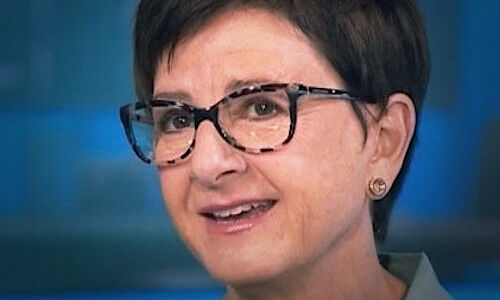Marie Owens Thomsen: «Trade War Hatchet Brandished Again»
Coronavirus-fueled hostility against multilateralism is underway, said Marie Owens Thomsen, Indosuez Wealth Management’s global head of economic research, underlining a reenergized U.S-China trade war.
«This is not necessarily because one has to be a populist or a nationalist but just by what has been perceived as a necessity,» Marie Owens Thomsen said in a media call yesterday, referring to widespread calls to shift back home the manufacturing of critical goods like healthcare products.
«The crisis has shown the dangers associated with being dependent on specific suppliers of certain items that judged essential or of strategic importance.»
But whilst specific protection of certain industries may make sense, Owens Thomsen underlines that «any economic policy that impedes trade is a suboptimal economic policy» making a trade war a lose-lose situation for all.
Tensions Rising Again
«The recent statement from the U.S. strongly suggests that the hatchet has not been buried,» Owens Thomsen illustrated. «Instead, it has been brandished again.» Only several months removed from the signing of a U.S.-China phase one trade deal, tensions between the world’s two largest economies is rising again. But despite constant talk of balancing deficits, Owens Thomsen believes the ongoing conflict has more to do with politics.
«If the U.S. administration really wanted to address its trade deficits, it should raise taxes rather than cutting them as they did in 2017,» she said.
«I believe very much that the trade war with China actually doesn’t have that much to do with trade and that it is motivated very fundamentally by anxiety in the western world which is associated with the rise of China, in particular, and Asia, in general.»
Post-WWII Solution
Hopes for better international relations aside, Owens Thomsen underlined that much work remained underway as economies face the worst crisis since 2008 and probably the worst since World War II – the last time debt accumulation reached extreme levels.
«How was [debt] is solved in WWII? Negative real interest rates,» she said. «We had nominal interest rates below the rate of inflation for pretty much 35 years. I believe that is in all likelihood the go-to solution this time as well. There are other ways of dealing with this issue but they tend to be complicated and not politically easy to implement.»
Indosuez Wealth Management forecasts a 3 percent GDP contraction followed by a 5.5 percent rebound in 2021 with China’s economy bottoming in Q1 and the west in Q2.



























